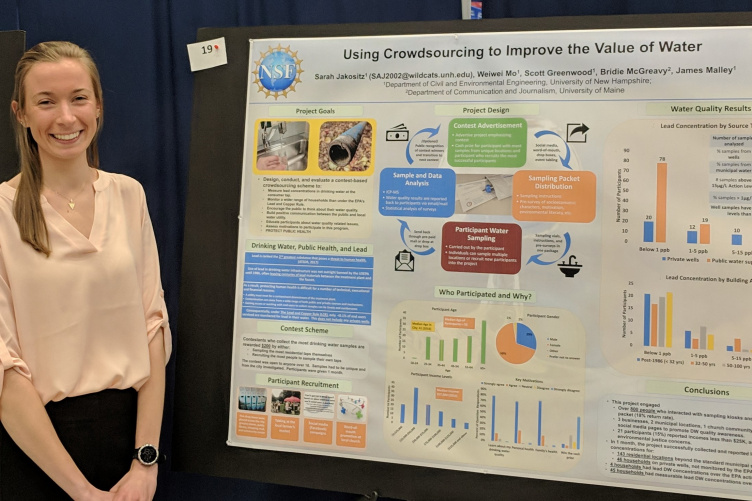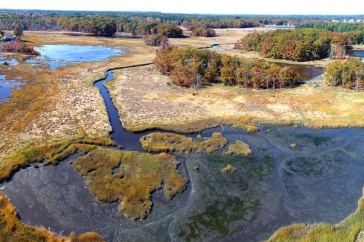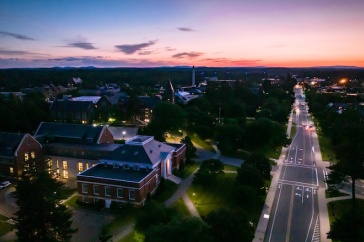
A graduate student in civil and environmental engineering recently received top honors for a poster on citizen science at a New England conference.
Sarah Jakositz placed first in the graduate division of the New England Water Works Association student poster competition; she explained that her research involves designing and testing methods to engage the public in water quality monitoring at their home taps.
“The goal of our work is to get homeowners more involved in the monitoring process in the hopes of increasing the number of sampling points monitored, including private wells in the monitoring process, and as a result allow early response and risk management to better protect public health from water quality issues,” Jakositz said.
She explained that her poster takes the listener through the course of the project. This included advertising free water testing through Facebook and flyers. Also, there were drop boxes in grocery stores, a public library, a community center, and a local mall where participants could pick up sample packets.
“We may not have received as many packets back as we had originally hoped, but we were ultimately happy with our numbers and are still today crunching through our piles of data,” Jakositz said. “The participants who gave us feedback were so appreciative of our work, and that in itself was the only praise we needed.”
Jakositz graduated from UNH with a Bachelor of Science in in Environmental Engineering in May 2018; she was debating whether to attend graduate school when she was approached about this project by Dr. Weiwei Mo, who is her current advisor. Jakositz plans to graduate in December 2019 and find a position as a water engineer.
“I didn’t know too much about citizen science before this but have since learned about and seen first-hand the positive impact a community can have on research and science in general,” she said. “As engineers, we often face complex problems that require multiple levels of analysis and interpretation. Breaking all of that down for the layperson was a test of my communicable abilities, but it was something I think should be more commonplace, especially in a field like environmental engineering where everything we do affects the public in some way.”
-
Written By:
Kristen Melamed | Graduate Admissions
















































